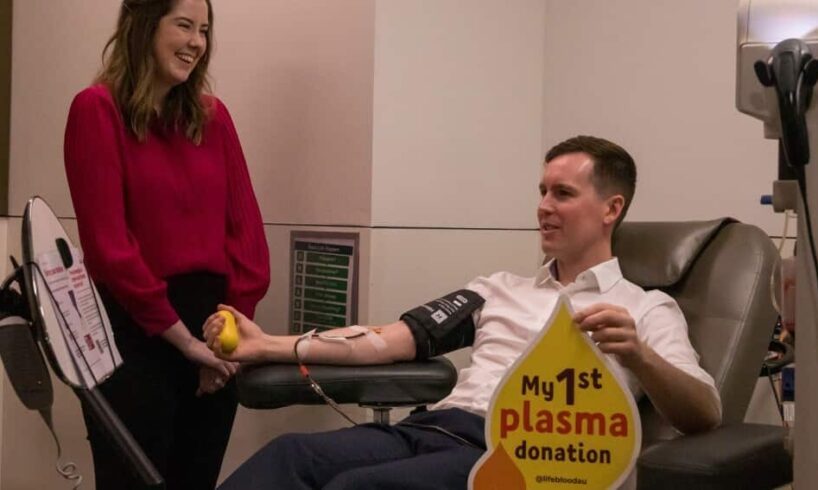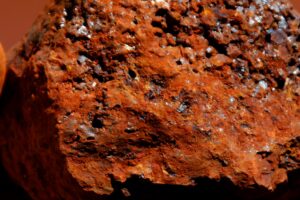
Chris Steel hasn’t sat in a donor lounge chair for decades.He compared his last phone call from Red Cross Australia asking him to donate, “effectively having to come out again”.”I had to say, look, I know I can’t donate. I’m gay. I’m sorry,” he told SBS News.”And you know, it is one of those things that you don’t want to have to necessarily confront. It’s a difficult conversation to have.”Steel, who is the ACT treasurer, has been advocating for blood donation services to include donations from gay and bisexual men for years.
He says he is now happy to see the source of angst removed for many.
From Monday, most gay and bisexual men, those using pre-exposure prophylaxis (PrEP) and transgender women will be able to donate plasma nationwide, even if they’d had sex with men in the previous three months, as long as they meet all other eligibility criteria.
Lifeblood Australia estimates the change affects 600,000 Australians and anticipates an extra 24,000 donors or 95,000 extra plasma donations as a result.
Ban rooted in HIV transmission fears
Skye McGregor, an epidemiologist whose work focuses on surveillance and prevention of sexually transmissible infections and blood-borne viruses at the Kirby Institute at the University of NSW, said the ban stems from the 1980s.She said fears over transmitting HIV through blood transfusions prompted an urgent health response from Australia and many other countries around the world.”Australia introduced an indefinite deferral for men who have sex with men, and this because they’re the population who’ve historically been most impacted by HIV,” she told SBS News.”There was a three-month or more delay between someone acquiring HIV and a test being able to detect it.
“And so as HIV testing improved over time, the deferral for men who have sex with men decreased from indefinite to 12 months … then in 2021 this was reduced to three months.”
First-time donor Johannes felt frustrated that he was unable to donate for years. Source: SBS News / Rania Yallop
Steel is excited to witness the Therapeutic Goods Administration (TGA) provide a safe pathway for donating the liquid gold and hopes to encourage thousands to donate.”Gay men are just as altruistic as anyone else,” Steel said.
“They want to help others, and they’ve been prevented from doing so; that changes today, and it’s really great to see this step forward for equality.”
The service is also working on changes to eligibility for blood and platelet donations after the TGA approved a submission to remove gender-based sexual activity rules.Under those changes, all donors will be asked the same questions about their sexual activity, regardless of their gender or sexuality.
All donors with new or multiple partners will be prohibited from proceeding if they’ve had anal sex in the last three months.
Rolling up their sleeves a ‘step towards equity’
Since hearing about the rules update, 26-year-old Canberran Ben, who did not give his last name, has been recruiting friends to roll up their sleeves.Ben arrived before 9am to be one of the first donors at the launch event on Monday. He said he found the previous guidelines “a little bit unfair”.
“It’s a step towards equity and I think it’s a reasonable sacrifice to make,” he told SBS News.
Following the rule change, Ben (right) has already enlisted six of his friends to donate plasma. Source: SBS News / Rania Yallop
Ben was accompanied by Johannes, who works in a Canberra hospital and was motivated to add to the plasma supply after seeing the impact on recipients first-hand.
“I’m at the giving side of blood products, and I know how life-saving it can be to have them, whether that’s plasma or red blood cells,” Johannes said.
‘Felt braver’: Life-changing plasma
Hayley Teasdale cannot put into words the impact of two small vials of plasma.
For years, a rare primary immune deficiency left her unwell, bedridden and frequently visiting the hospital.
Hayley Teasdale uses two vials of plasma a week, the equivalent of 100 plasma donations, to boost her immunocompromised body. Source: SBS News / Rania Yallop
Now, the equivalent of 100 plasma donations a year, has meant she can live a full and active lifestyle and keep up with her three-year-old daughter.Teasdale received her first dose of plasma at the age of 24 and described it as “life-changing”.”I felt braver to go out in public spaces.”I could deal with getting sick now, because I had the support of someone else’s immune system, essentially, and that was very powerful.”
Source





